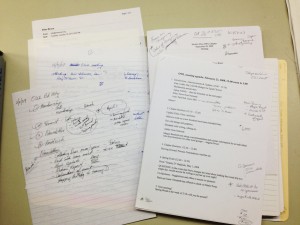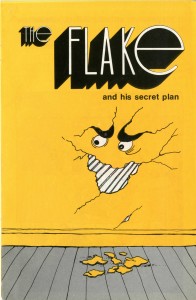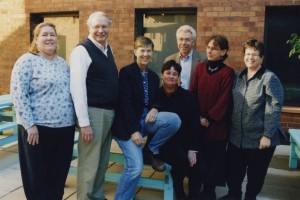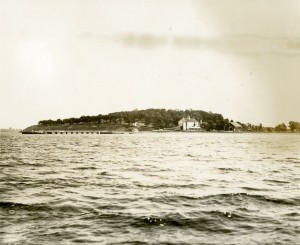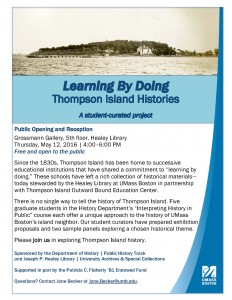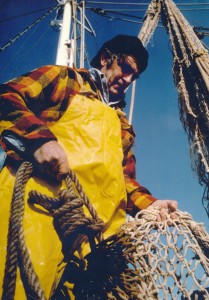
James Costakes. ‘This is Jimmy Costakes, called Jimmy the Greek. He was engineer and part owner with Gary Earl of the ‘Stephen R.’ Jimmy lived on Oxford Street in Fairhaven.” Contributor: Dawn Costakes.
The photographs and stories collected at the New Bedford Fishing Heritage Center’s Digitizing Day are available for research at openarchives.umb.edu, the digital collections site for University Archives & Special Collections in the Joseph P. Healey Library at UMass Boston. The May 21, 2016, event was part of a year-long effort of the New Bedford Fishing Heritage Center to digitize the cultural heritage of New Bedford’s fishing community.
The event was a collaboration involving the New Bedford Fishing Heritage Center (NBFHC), New Bedford Whaling National Historical Park, the New Bedford Free Public Library, MIT Sea Grant, and the Claire T. Carney Library at University of Massachusetts Dartmouth. Funding for this project was provided to NBFHC through a Common Heritage grant program from the National Endowment for the Humanities and included support for technical assistance from the Joseph P. Healey Library at University of Massachusetts Boston.
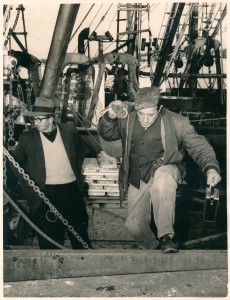
Home at last. “Manuel F. Sylvia, cook on the ‘Moonlight’ arriving at State Pier in New Bedford after being lost at sea, without power, for 36 hours in December 1962.” Contributor: David A. Sylvia.
Thirty-five individuals shared over 75 photographs and other documents related to New Bedford’s fishing industry from the 1950s to the present. Many of the images depict men at work on fishing vessels at sea over the years. Other photographs document the many family enterprises that make up the city’s fishing industry, including processing plants and marine electronics services. Contributors shared documents describing the work, compensation, and union organization of fish lumpers as well as other commercial fishing jobs.
Staff from University Archives & Special Collections at UMass Boston and volunteers from the department’s Mass. Memories Road Show program trained volunteers, registered contributors, scanned images, and recorded stories at the event.
The New Bedford Fishing Heritage Center will continue to collect digital copies of images and stories from individuals and families connected to the city’s fishing industry. Anyone interested should contact the center at 508-993-8894 or by email at info@fishingheritagecenter.org.

Lots of lobster. “Lobster tow on the ‘Lillian B.’ All in one tow, normally you get only a few baskets, maybe two. Pictured, from left to right: Karluf Bendiksen, Bjarne Bendiksen, and Chet Emery.” Contributor: Reidar Bendiksen.
Browse the New Bedford Fishing Heritage Digitizing Day collection.
University Archives & Special Collections in the Joseph P. Healey Library at UMass Boston collects materials related to the university’s history, as well as materials that reflect the institution’s urban mission and strong support of community service, notably in collections of records of urban planning, social welfare, social action, alternative movements, community organizations, and local history related to neighboring communities.
University Archives & Special Collections welcomes inquiries from individuals, organizations, and businesses interested in donating materials of an archival nature that that fit within our collecting policy. These include manuscripts, documents, organizational archives, collections of photographs, unique publications, and audio and video media. For more information about donating to University Archives & Special Collections, click here or email library.archives@umb.edu.
